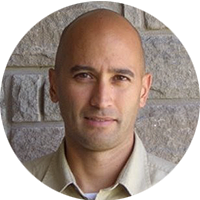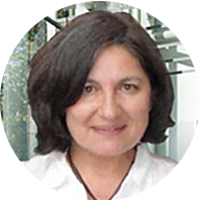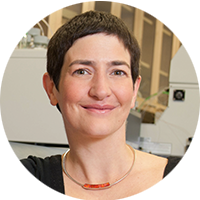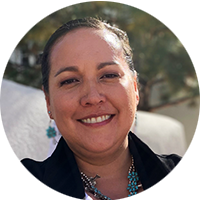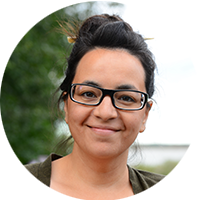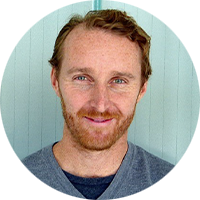Our Team
CoVaRR-Net brought together some of Canada’s most eminent researchers and experts from 130 fields of expertise. By connecting this country’s best variants of concern-related research labs from 24 universities and 24 other major institutions, the Network ensured a rapid and coordinated response to this complicated facet of the pandemic.
CoVaRR-Net was initially structured with a Central Network Management team (which included Communications and Knowledge Mobilization), a cross-cutting theme of Equity, Diversity, Inclusion and Indigeneity (EDI&I), and eight research themes or “pillars,” five assessing a different biological aspect of variants and three focused on Indigenous communities, public health impacts, and ensuring findings are quickly and efficiently communicated to decision makers, scientists, and the general public.
It later created two more pillars and five “major initiatives” (two of which were also Pillars). The latter were initiatives that were not easily funded through standard operating grant competitions but were critical for effective rapid response research.
CoVaRR-Net’s Executive Committee was the body that voted on funding allotments and strategy, among other subjects. The EC was comprised of the Executive Director, the Director of Equity, Diversity, Inclusion, and Indigeneity (who had veto power over the EC), a lead from each of the ten pillars, the Director of the Biobank, the Director of the Wastewater Surveillance Research Group (WWSRG), and the Lead for the Coronavirus in the Urban Built Environment (CUBE) project. There were therefore 15 votes within the EC.
We all work together
We worked collaboratively with Health Canada, the Public Health Agency of Canada (PHAC) and its National Microbiology Laboratory (NML), the Canadian COVID-19 Genomics Network (CanCOGeN), the Canadian Food Inspection Agency (CFIA), Innovation, Science and Economic Development Canada (ISED), Genome Canada, provincial and territorial public health labs, and other national and international bodies.
Network Coordinator
Nidhi Chaudhary
Communications & Knowledge Mobilization
Team Members
Rebecca Burns
Social media, content creation
Neal Evan Caminsky
President, Red Dream Studios
Marie-Hélène Cartier
Translation
Tim Parent
Social media, media relations, content creation
Mark Witten
Project coordination, content creation
Michelle Wyse
Founder and Senior Graphic Designer, Kumquat Designs
Equity, Diversity, Inclusion, and Indigeneity
Pillar 1
Immunology & Vaccine Protection
Investigating how the immune system responds to emerging variants and assessing the effectiveness of vaccines against them.
Members
Vivian Liu
McGill University
Heidi Wood
National Microbiology Laboratory
Coordinator
Laurie Seifried
Pillar 2
Host-Pathogen Interactions
Exploring the interactions between SARS-CoV-2 variants and different host species to understand infection and disease, both in the laboratory and the field.

Brad Pickering
Zoonosis, virus-host interactions, One Health Framework, emerging diseases, high consequence pathogens
Research Scientist, head of Special Pathogens, National Centre for Foreign Animal Disease, Canadian Food Inspection Agency
Adjunct Professor, Department of Medical Microbiology and Infectious Diseases, University of Manitoba
Pillar 3
Virology
Evaluates the virus’ features in cells and animals. These include measuring infectivity, pathological effects, and vaccine and immune resistance in animals.
Coordinator
Annie Gravel
Pillar 4
Functional Genomics & Structure-Function of VOCs
Studying different areas of the viruses & how they interact with cells, investigating viral protein structures and functions & how they interact with human proteins.
Members
William (Rod) Hardy
Sinai Health Systems / University of Toronto
Vivian Liu
McGill University
Joyce Wilson
University of Saskatchewan
Coordinator
Laurie Seifried
Pillar 5
Viral Genomics & Sequencing
Reads each variant’s genetic code and looks at the relationships between the sequences of the parent virus and the variants.
Members
Marc Desforges
CHU Sainte-Justine
Ryan Ziels
University of British Columbia
Coordinator
Ju-Ling Liu
Pillar 6
Computational Analysis, Modelling and Evolutionary Outcomes (CAMEO)
Using computer modelling and calculations to evaluate the genetic evolution of variants and how quickly they propagate in the Canadian population.
Members
Paul Gordon
University of Calgary
Julie Hussin
Université de Montréal
Rees Kassen
McGill University
Art Poon
Western University
William Hsiao
Simon Fraser University
Jeffery Joy
University of British Colombia
Carmen Lia Murall
Public Health Agency of Canada
Coordinator
Erin Gill
Indigenous Involvement
Indigenous communities in Canada have disproportionately borne the impact of the COVID-19 pandemic. CoVaRR-Net’s Pillar 7, Indigenous Engagement, Development, and Research (CIEDAR), works to build strong partnerships with and be relevant to Indigenous communities from coast-to-coast-to-coast. CIEDAR’s goal is to actively collaborate with Indigenous community collaborators to develop potential solutions to halt the spread of COVID-19 VOCs. We aim to answer questions about how health, socioeconomic, and cultural factors either reduce or increase the spread of VOCs and communicate that information widely so that Canada’s Indigenous communities can make informed decisions. We focus on success stories, as well as support grassroots efforts and policies. We will also work collaboratively with other VOC Indigenous Networks, as they are created, in multiple areas.
Pillar 7
CoVaRR-Net’s Indigenous Engagement,
Development, and Research (CIEDAR)
Building partnerships with Indigenous communities and working collaboratively with the upcoming Indigenous Network for VOC in multiple areas.
Coordinator
Tamara Chavez
Pillar 8
Public Health, Health Systems and Social Policy Impacts
Studying the impacts of the variants on public health, our healthcare system, and on social policy and reporting these findings to decision-makers and government officials.
Members
Sara Allin
University of Toronto
Coordinator
Sohana Sadique
Pillar 9
Knowledge, Implementation and Training Team (KITT)
Connecting all activities from the other nine Pillars and quickly and efficiently sharing findings in order to best advance discoveries and inform decision and policymakers.
Members
Jamie Brehaut
Ottawa Hospital Research Institute
Alfonso Iorio
McMaster University
Julian Little
University of Ottawa
Giorgia Sulis
University of Ottawa
Pillar 10
Antiviral Strategies and Antiviral Therapeutics
Identifying and profiling effectiveness of leading antivirals alone or in combination against emerging SARS-CoV-2 variants and other human viruses with pandemic potential.

Nathalie Grandvaux
Antiviral Strategies & Antiviral Therapeutics Pillar Deputy
Professor in the Department of Biochemistry and Molecular Medicine, Université de Montréal
Associate Scientific Director of Students and Postdoctoral Affairs and Principal Investigator,
Centre de recherche du Centre Hospitalier de l’Université de Montréal (CRCHUM)
Co-founder and past-president, Canadian Society for Virology (CSV)
Co-director, Quebec COVID-Pandemic Network (QCPN)
Members
Rob Kozak
Sunnybrook Health Sciences Centre
Joyce Wilson
University of Saskatchewan
Prameet Sheth
Queen’s University
Coordinator
Carl Perez
CoVaRR-Net Biobank
Manager
Nikita Rayne
Coordinator
Aliisa Heiskanen
Data Platform
Bioethics
Wastewater Surveillance Research Group

Doug Manuel
Member, Wastewater Surveillance Research Group
Public Health and Health Systems, Modelling
Public Health, Health Systems and Social Policy Impacts Pillar Deputy
Senior Scientist, Ottawa Hospital Research Institute
Distinguished University Professor, University of Ottawa
Clinical Research Chair, Precision Medicine for Chronic Disease Prevention, University of Ottawa
Coordinator
Carol Bennett

The Canadian Consortium of Academic
Biosafety Level 3 (CCABL3) Laboratories
Provides rapid guidance and recommendations to Canadian authorities when facing new emerging biological threats.

Mariana Baz
Member, Canadian Consortium of Academic Biosafety Level 3 Laboratories (CCABL3)
Senior Research Scientist and Head of the Antiviral Drug Sensitivity Division at the World Health Organization (WHO) Collaborating Centre for Reference and Research on Influenza;
Assistant Professor and Associate Director of the BSL3 laboratory, Université Laval

Marcel Behr
Member, Canadian Consortium of Academic Biosafety Level 3 Laboratories (CCABL3)
Director, Infectious Diseases, McGill University; Director, McGill Interdisciplinary Initiative in Infection and Immunity (MI4); Director, CL3 Lab, Research Institute of the McGill University Health Centre

Sarah Viehbeck
Ex officio member, Canadian Consortium of Academic Biosafety Level 3 Laboratories (CCABL3)
Chief Science Officer, Public Health Agency of Canada (PHAC)
Coordinator
Rajesh Jacob

















